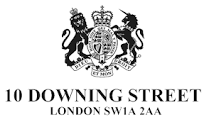PRESS RELEASE : UK introduces new post-Brexit trading scheme for developing countries [June 2023]
The press release issued by the Foreign Office on 19 June 2023.
The UK’s landmark scheme to boost trade with developing countries starts today.
- UK’s landmark Developing Countries Trading Scheme enters into force on 19 June.
- Scheme cuts tariffs on products entering the UK from 65 developing countries.
- It will help reduce import costs by over £770m per year, benefiting UK consumers and businesses.
The UK will today [Monday 19 June] radically simplify trading rules and cut tariffs on products from developing countries, saving UK businesses and consumers millions of pounds a year.
The UK’s new post-Brexit Developing Countries Trading Scheme (DCTS) – entering into force today – covers 65 countries that are home to over 3.3 billion people, and over half are in Africa. It removes or reduces tariffs and simplifies trading rules so that more products qualify for the scheme, making it more generous than the EU scheme the UK was previously a member of.
It will benefit developing countries looking to diversify and increase exports, driving their prosperity and reducing their need for aid.
The scheme saves UK businesses over £770 million per year by removing or cutting tariffs on over £9 billion of imports – increasing choice for UK consumers and potentially reducing prices on a wide variety of items such as clothes, food and children’s toys – as well as creating opportunities for UK businesses to trade internationally and grow the UK economy. Over time, were developing countries to increase trade with the UK under the scheme, businesses could save millions more on import costs.
Minister for International Trade Nigel Huddleston launched the scheme while on a visit to Ethiopia’s largest industrial business park, Bole Lemi. Ethiopia, which already has a trading relationship with the UK worth £838 million, pays zero tariffs on 100% of goods exported to the UK. Under the new scheme, Ethiopia and 46 other countries will be able to produce goods using components from many more countries, growing their opportunities to trade with the UK.
Speaking at the park, Minister Huddleston said:
This scheme is a brilliant example of the UK taking advantage of its status as an independent trading nation and I am excited to see it implemented today.
It will create opportunities for businesses around the world, supporting livelihoods, creating jobs and diversifying local and international supply chains. It will also benefit UK businesses and consumers by lowering import costs on a whole range of products.
Foreign, Commonwealth and Development Office Minister for Africa, Andrew Mitchell, said:
The UK’s new trading scheme for 65 developing countries, DCTS, shows how we can use trade to deliver development.
It will benefit traders around the world, including small and women-owned businesses which we are supporting through UK Trade Partnership programme.
While in Addis Ababa, Ethiopia’s capital city and home to many international corporations, Minister Huddleston will meet with UK and Ethiopian companies to discuss how they will benefit from the DCTS and new ways they can work with local businesses and other governments to grow trade.
The scheme benefits businesses all over the world and British companies that trade with these countries in everyday products such as bicycles and camping gear.
Executive Vice President at Specialized Bicycle Components Inc, Robert Margevicius, said:
The DCTS enables us to maintain our supply chains in countries like Cambodia and continue to incorporate components from around the region, including from Vietnam.
We are committed to supporting our workforce and maintaining quality. We manufacture high-value frames in Cambodia and Specialized uses preference scheme benefits to invest in this higher level of production.
Head of International Logistics and Trade Compliance at Halfords, Ben Price, said:
The revised rules of origin under the Developing Country Trading Scheme will be hugely beneficial for Least Developed Countries and companies who are sourcing products from them. Under the previous regime many articles were precluded from benefitting from 0% duties due to the complexity of the rules of origin.
The further liberalisation and rule options that have been introduced under the DCTS are incredibly helpful and will support business and economic growth in some of the poorest countries. A great example of this is camping equipment, such as tents, from developing countries in Southeast Asia.



